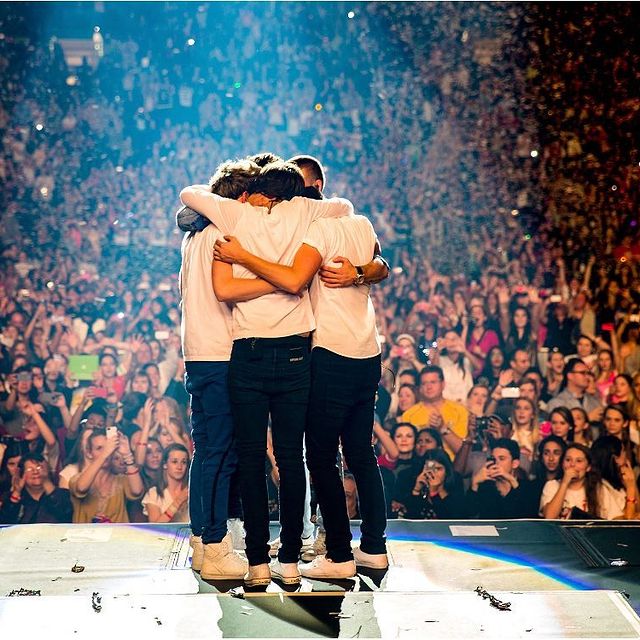Your key to popularity — the teenage girl
One of my favorite popular tweets of late (from the dear @SAINTLIAR) says “being in your 20s is just going back to liking everything you liked when you were 13 but without being ashamed.” With over 130,000 retweets, user “sofía” has clearly struck a chord with a particular demographic — one that I am most definitely a part of.
Like a lot of teenagers (girls, specifically), I have harbored my fair share of passion for pieces of petroleum pop-culture. I adored gauchos and pictures of myself and jeans under skirts, and as I got older, my mustachioed marshmallow pillow was among my most prized possessions (along with my duct-tape wallet, my rudimentary homemade movies, and the superwholock content that flooded my first tumblr account).
But as I continued on the oxymoronic slow-fast track through adolescence, that unabashed passion was replaced with shame. I traded my favorite summer tie-dyes and cowboy-fringed boots for moody band t-shirts and black vans, though maybe more telling, I deleted all content of myself from Instagram, Twitter, Facebook, YouTube and deleted my first Pinterest and Tumblr accounts completely.
For a long time, I only felt comfortable sharing what I was passionate about with other girls and women. It seemed to me that everything I liked could be mocked or minimized in some way — I was either basic and unoriginal or I was trying too hard to be artsy and “not like other girls.”
This fear of social rejection is fairly common, but I experienced the effects of internalizing it in two particular ways. The first was that I didn’t tell anybody (not even my closest girl friends) that I absolutely adored a popular boy band at the time — and I mean I went to genuinely insane lengths to hide it. The second was what is now popularly referred to as “gatekeeping”: when other girls said they liked some of the same things I did, I would immediately quiz them and dismiss them as a “fake fan” because they didn’t know as much.
Harry Styles articulated an offshoot of this perplexing cultural phenomenon perfectly in his 2016 interview with Rolling Stone:
“Styles is aware that his largest audience so far has been young – often teenage – women. Asked if he spends pressure-filled evenings worried about proving credibility to an older crowd, Styles grows animated. ‘Who’s to say that young girls who like pop music – short for popular, right? – have worse musical taste than a 30-year-old hipster guy? That’s not up to you to say. Music is something that’s always changing. There’s no goal posts. Young girls like the Beatles. You gonna tell me they’re not serious? How can you say young girls don’t get it? They’re our future. Our future doctors, lawyers, mothers, presidents, they kind of keep the world going. Teenage-girl fans – they don’t lie. If they like you, they’re there. They don’t act ‘too cool.’ They like you, and they tell you. Which is sick.’”
This extends beyond music and even beyond the entertainment sphere as a whole. According to journalist Laura Moss, this kind of large-scale minimization of teenage girls’ interest “can further reinforce ideas that things created for women and by women are unimportant.”
A better and more inclusive future combatting this type of sentiment will only be built on the foundation of validating human experiences (even if that means including the occasional teenage hysteria).
 Sage Souza is a junior studying political science and Spanish. In her free time, she enjoys long walks on the beach, making too many playlists on Spotify, and retweeting Karl Marx fancams.
Sage Souza is a junior studying political science and Spanish. In her free time, she enjoys long walks on the beach, making too many playlists on Spotify, and retweeting Karl Marx fancams.
—sage.souza@usu.edu
@sageksouza

